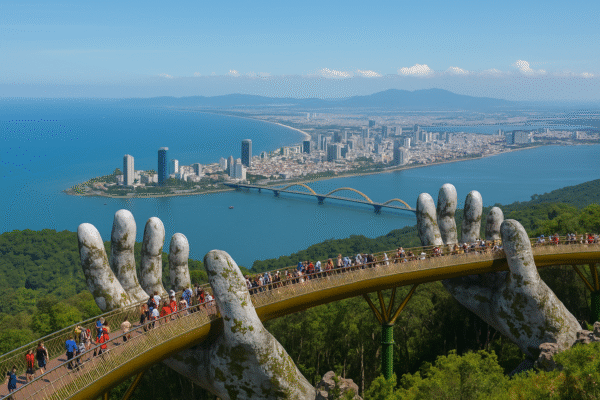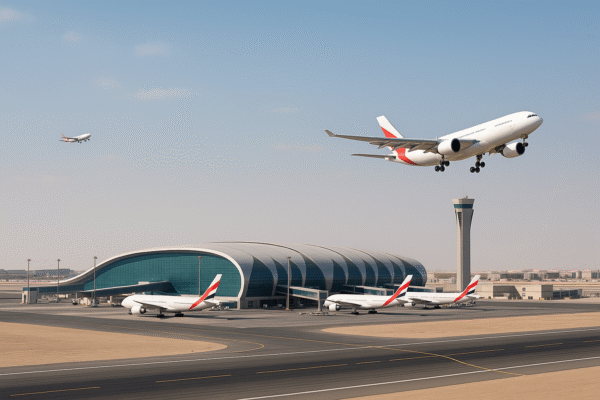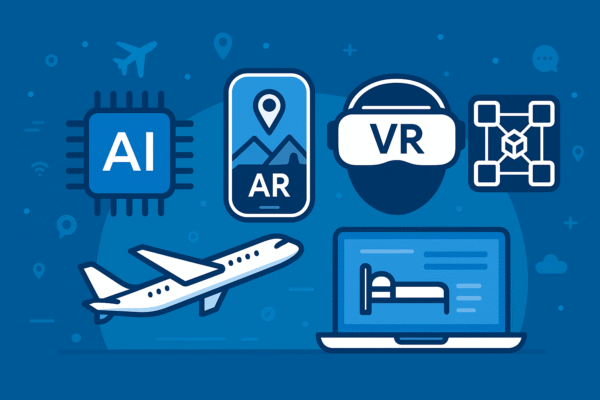As the world embraces digital transformation, the travel industry stands at the forefront of a technological renaissance. Innovations in Artificial Intelligence (AI), Augmented Reality (AR), Virtual Reality (VR), and blockchain are collectively reshaping the way we plan, book, and experience travel. What once seemed futuristic is now becoming mainstream, enabling smarter, safer, and more sustainable tourism worldwide.
AI: The Brain Behind Smarter Travel
Artificial Intelligence has emerged as a key driver of innovation across all stages of travel—from trip planning to customer service.
1. Personalized Trip Planning
Modern travelers expect personalization. AI-powered platforms like TripGenie, Wonderplan, and Google Travel analyze user preferences, past behavior, and real-time data to craft tailor-made itineraries. These smart tools recommend ideal destinations, accommodations, activities, and dining options, saving users hours of research and decision-making.
2. Predictive Pricing for Budget Travel
AI’s predictive algorithms track fluctuating airfare and hotel prices. They notify travelers of the best times to book, ensuring maximum savings without compromising on experience.
3. Hyper-targeted Marketing
Travel companies now leverage AI to create behavior-driven campaigns. By analyzing browsing patterns, booking history, and travel intent, AI delivers personalized promotions—enhancing user engagement and boosting conversions.
AR & VR: Immersive Exploration Before Departure
Augmented and Virtual Reality are redefining how travelers explore options before they pack their bags.
1. Virtual Destination Previews
Through VR headsets or mobile apps, users can experience virtual walk-throughs of destinations, hotel rooms, or even guided street tours. This immersive approach builds confidence in decision-making and reduces booking anxiety.
2. Augmented Navigation & Cultural Tours
AR-enabled mobile apps now enhance live travel experiences. From interactive museum displays in Paris to real-time translation signs in Tokyo, travelers can engage with locations in ways never before possible. Historic sites, for example, are now offering AR reconstructions, allowing visitors to view ancient landmarks in their original glory.
Smart Airports & Hotels: Seamless Travel Infrastructure
Digital transformation doesn’t stop at trip planning. AI and IoT (Internet of Things) are revolutionizing the physical journey as well.
1. Biometric Check-ins and Security
Airports in countries like the UAE, USA, and India have widely adopted facial recognition and fingerprint scanning for faster immigration and boarding. These systems reduce wait times and enhance border security, making travel more efficient.
2. Contactless Hotel Services
Digital check-ins, mobile key access, and smart room controls have become standard in hotels globally. Guests can now unlock their rooms, adjust lighting or air conditioning, and order services—all from their smartphones.
3. Automated Baggage Systems
AI-driven baggage handling, combined with biometric verification, ensures luggage is safely matched with passengers. This innovation dramatically reduces lost luggage cases and enhances traveler trust.
Blockchain: Building Trust and Transparency
While often associated with finance, blockchain is revolutionizing transparency and accountability in tourism.
1. Decentralized Booking Systems
Blockchain eliminates intermediaries, allowing travelers to book flights, hotels, and experiences directly with vendors. This reduces costs and fraud risks.
2. Loyalty Programs & Digital Identity
Blockchain ensures secure digital identities and supports global loyalty programs that are interoperable. Frequent travelers can manage points and benefits across multiple platforms without the fear of data breaches.
3. Sustainability Tracking
Using blockchain, travelers can now verify the eco-practices of airlines, hotels, and tour companies. This transparency allows for informed, sustainable travel choices.
Eco-Conscious Tourism: Technology for a Greener Tomorrow
Environmental responsibility is no longer optional. Digital technologies now play a critical role in advancing green tourism.
1. AI for Sustainable Routing
Airlines and tour operators use AI to calculate the most fuel-efficient routes. In addition, AI helps recommend eco-certified hotels and low-impact experiences.
2. Virtual Tourism as a Green Alternative
VR technology allows people to explore world heritage sites or attend events virtually—reducing carbon footprints without compromising cultural exposure.
3. Blockchain for Ethical Travel
Travelers can now verify whether their bookings support local communities, animal welfare, or climate-friendly operations. This holds businesses accountable while promoting conscious tourism.
The Future of Travel: What’s Next?
As we look ahead, integration among these technologies is expected to grow even deeper. Imagine an AI tool recommending a secluded island for your honeymoon based on mood analysis, letting you explore the beach through VR, verifying its eco-certifications on blockchain, and handling all bookings with voice commands.
The convergence of AI, AR/VR, and blockchain will not only drive innovation but democratize luxury travel, ensure accessibility, and preserve the world’s cultural and environmental heritage.
Conclusion
In 2025, the travel industry is no longer just about movement—it’s about experience, efficiency, and ethical impact. Technologies like AI, AR, VR, and blockchain are empowering travelers with better choices, immersive experiences, and greener paths. As these tools continue to evolve, travel becomes more than just a journey—it becomes a smarter, cleaner, and more personalized adventure.
For more travel news like this, keep reading Global Travel Wire















